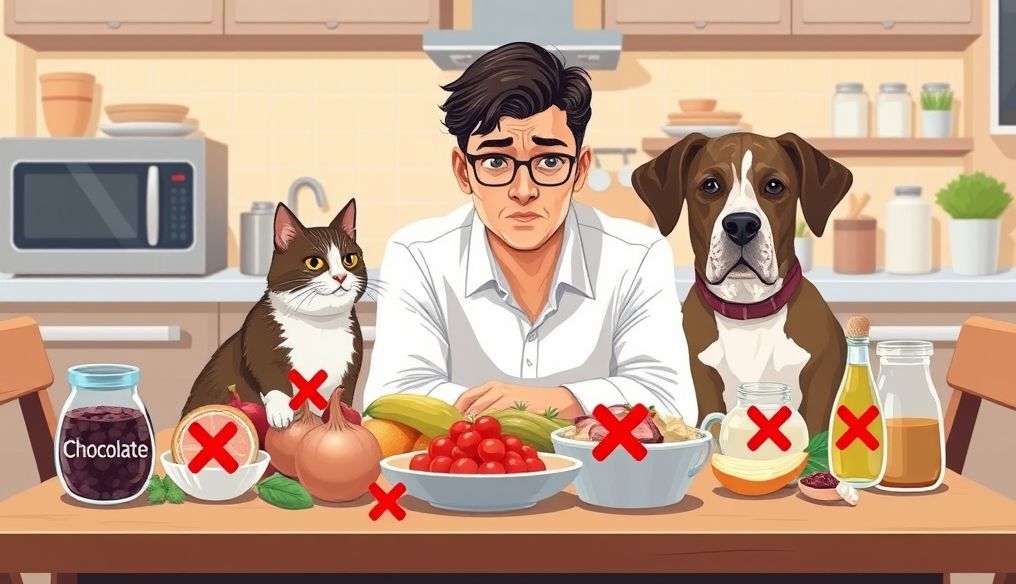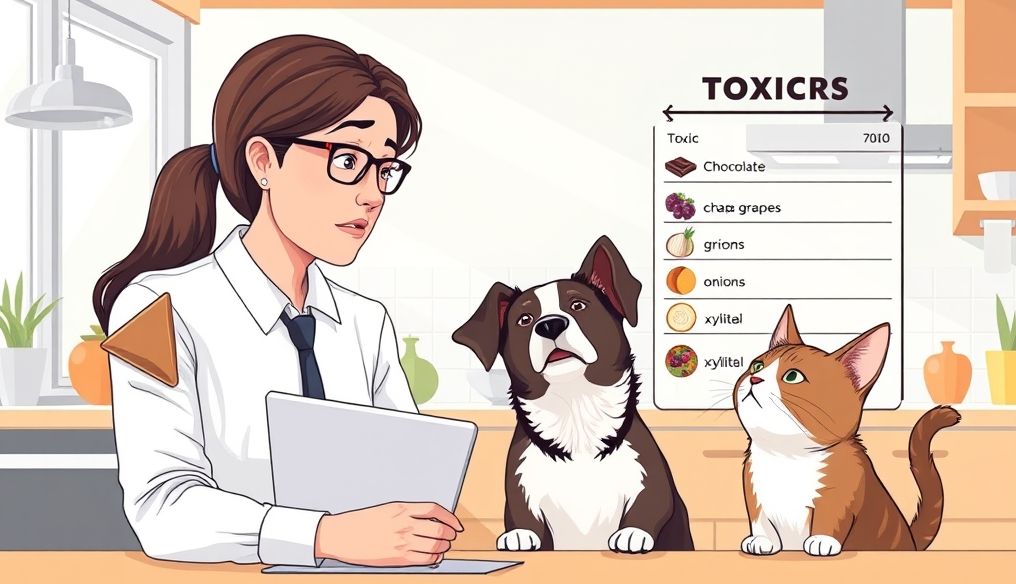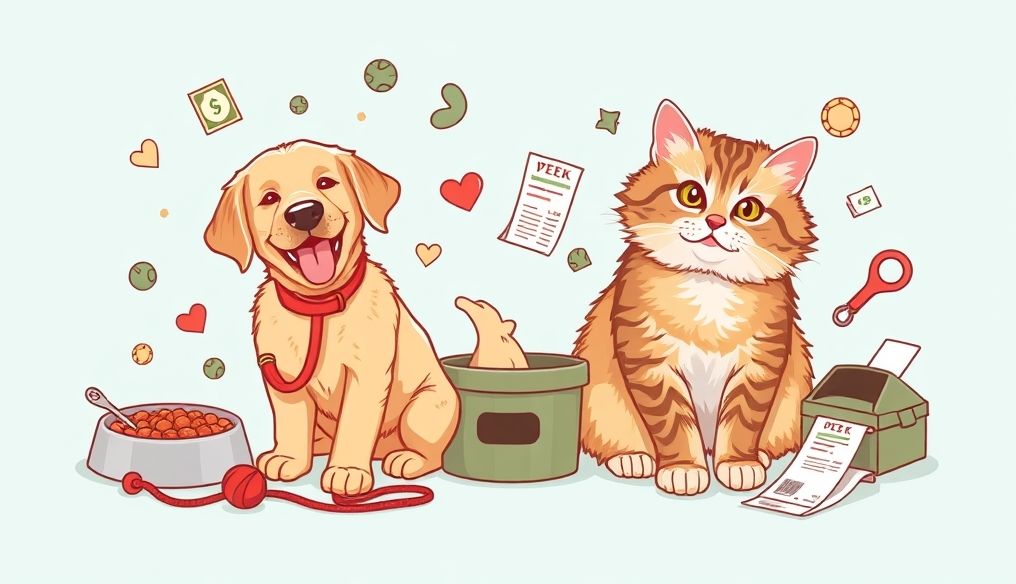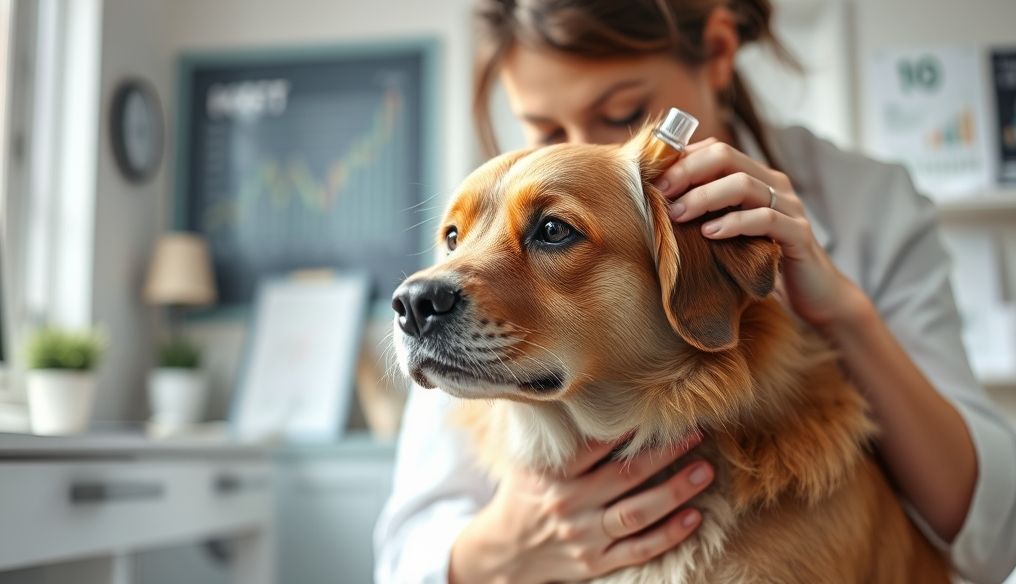What Human Foods Are Toxic to Cats and Dogs, and How Can We Protect Our Pets?
Many believe that what's safe for humans is safe for pets, but this isn't true. Some common foods we eat daily can be toxic and dangerous to the health of cats and dogs. This article provides a detailed list of human foods that are toxic to cats and dogs, explaining why they are toxic and how to prevent them to protect our pets.
1. Chocolate: A Danger to Your Pet's Health
Chocolate, in all its forms (dark, milk, white), contains theobromine and caffeine, which are stimulants that negatively affect the nervous system of pets. Cats and dogs are more sensitive to these substances than humans, making chocolate toxic to them.
- Symptoms: Vomiting, diarrhea, increased thirst, excessive urination, restlessness, hyperactivity, irregular heartbeat, seizures, and in severe cases, death.
- Prevention: Chocolate should be kept out of the reach of pets. If your pet ingests chocolate, seek veterinary attention immediately.
2. Onions and Garlic: Harmful Effects on Blood Cells
Onions and garlic, whether raw, cooked, dried, or powdered, contain sulfur compounds that can damage the red blood cells in cats and dogs. This damage can lead to hemolytic anemia.
- Symptoms: Lethargy, weakness, loss of appetite, shortness of breath, pale gums.
- Prevention: Avoid giving your pet any food containing onions or garlic, even in small amounts.
3. Grapes and Raisins: Toxicity of Unknown Cause
Although the exact cause of toxicity is unknown, grapes and raisins can cause acute kidney failure in cats and dogs. Even small amounts can be dangerous.
- Symptoms: Vomiting, diarrhea, lethargy, loss of appetite, abdominal pain, decreased or absent urination.
- Prevention: Avoid giving grapes and raisins to pets entirely.
4. Avocado: Toxic Persin Substance
Avocado contains a substance called persin, which is toxic to many animals, including cats and dogs. It can cause digestive and heart problems.
- Symptoms: Vomiting, diarrhea, abdominal pain, difficulty breathing, fluid accumulation in the chest.
- Prevention: Avoid giving avocado to pets.
5. Artificial Sweeteners (Xylitol): Risk of Low Blood Sugar
Xylitol is a common artificial sweetener used in many sugar-free products, such as gum, toothpaste, and candies. Xylitol can cause a large release of insulin in cats and dogs, leading to a sharp drop in blood sugar (hypoglycemia) and liver failure.
- Symptoms: Weakness, seizures, loss of coordination, vomiting, coma, and in severe cases, death.
- Prevention: Ensure that all products containing xylitol are kept out of the reach of pets.
6. Alcohol: Serious Effects on the Nervous System
Alcohol, whether in alcoholic beverages or in some medications or cleaning products, can be very toxic to cats and dogs. Alcohol can affect the central nervous system and cause serious problems.
- Symptoms: Loss of coordination, drowsiness, vomiting, diarrhea, difficulty breathing, coma, and in severe cases, death.
- Prevention: Keep all products containing alcohol out of the reach of pets.
7. Cooked Bones: Risk of Choking and Injuries
Although bones may seem like a delicious treat for dogs, cooked bones can splinter easily and cause choking or injuries in the digestive system.
- Symptoms: Choking, vomiting, constipation, abdominal pain, bleeding in the stool.
- Prevention: Avoid giving cooked bones to dogs. Large raw bones can be given under close supervision.
8. Caffeine: Similar Effects to Chocolate
Caffeine found in coffee, tea, and energy drinks can have similar effects to chocolate on cats and dogs, leading to hyperactivity and irregular heartbeat.
- Symptoms: Restlessness, hyperactivity, increased thirst, excessive urination, irregular heartbeat, seizures.
- Prevention: Avoid giving any products containing caffeine to pets.
9. Raw Yeast Dough: Stomach Expansion
Raw yeast dough used in bread making can expand in the pet's stomach and cause pain and bloating. In addition, yeast produces alcohol as a byproduct, increasing the risk of alcohol poisoning.
- Symptoms: Abdominal pain, bloating, vomiting, lethargy, loss of coordination.
- Prevention: Avoid giving raw dough to pets.
10. Milk and Dairy Products: Digestive Problems
Most adult cats and dogs are lactose intolerant, meaning they cannot properly digest the lactose in milk and dairy products. Consuming milk can lead to digestive problems.
- Symptoms: Diarrhea, vomiting, bloating, abdominal pain.
- Prevention: Avoid giving milk and dairy products to adult cats and dogs. Small amounts of plain, low-fat yogurt can be given as it contains beneficial bacteria.
Additional Tips to Protect Your Pet
- Store Food Safely: Keep all potentially toxic foods out of the reach of pets, in closed cabinets or sealed containers.
- Avoid Giving Table Scraps: Avoid giving table scraps to pets, especially if they contain ingredients that may be toxic.
- Read Ingredient Labels: Before giving any new product to your pet, be sure to read the ingredient label carefully to ensure it does not contain any toxic substances.
- Seek Veterinary Attention: If you suspect your pet has ingested a toxic food, seek veterinary attention immediately.
By knowing the human foods that are toxic to cats and dogs and taking the necessary precautions, you can protect your pet and ensure their health and safety.




